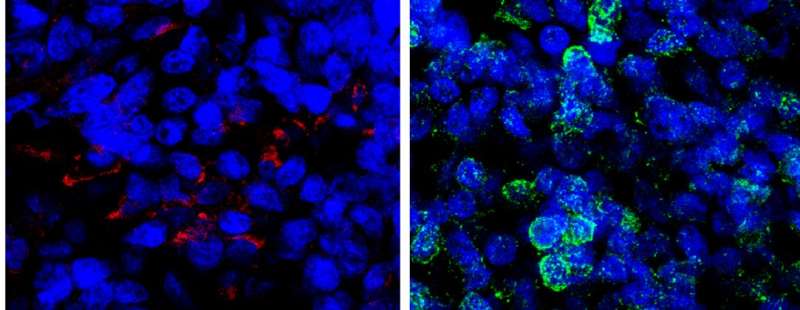Researchers test psychedelic on cerebral organoids

A Brazilian study, published in Scientific Reports on October 09, 2017, has identified changes in signaling pathways associated with neural plasticity, inflammation and neurodegeneration triggered by a compound from the family of dimethyltryptamine known as 5-MeO-DMT.
"We describe for the first time psychedelic-related changes in the molecular functioning of human neural tissue," says Stevens Rehen, study leader, Professor of Federal University of Rio de Janeiro (UFRJ) and Head of Research at D"Or Institute for Research and Education (IDOR).
Recent studies have demonstrated that psychedelic substances such as LSD, MDMA and ayahuasca brew, which contains DMT, have possible anti-inflammatory and antidepressant effects, but the lack of appropriate biological tools is a critical limitation for the identification of molecular pathways targeted by psychedelics in the brain. In order to study the effects of 5-MeO-DMT, Vanja Dakic (IDOR) and Juliana Minardi Nascimento (IDOR and University of Campinas) have administered a single dose of the psychedelic to 3-D cultures of neural cells that mimic a developing human brain.
By employing mass spectrometry-based proteomics to analyze such cerebral organoids, they discovered that 5-MeO-DMT altered the expression of nearly a thousand proteins. Then they mapped which proteins were impacted by the psychedelic substance and their role in the human brain. The researchers found that proteins important for synaptic formation and maintenance were upregulated. Among them were proteins related to cellular mechanisms of learning and memory, key components of brain function.
On the other hand, proteins involved in inflammation, degeneration and brain lesions were downregulated, suggesting a potential neuroprotective role for DMT. "Results suggest that classic psychedelics are powerful inducers of neuroplasticity, a tool of psychobiological transformation that we know very little about," says Sidarta Ribeiro, coauthor of the study.
Professor Draulio Araujo of UFRN says, ""The study suggests possible mechanisms by which these substances exert their antidepressant effects that we have been observing in our studies."
"Our study reinforces the hidden clinical potential of substances that are under legal restrictions, but which deserve attention of medical and scientific communities," Dr. Rehen says.
More information: Short term changes in the proteome of human cerebral organoids induced by 5-MeO-DMT. Scientific Reports (2017). www.nature.com/articles/s41598-017-12779-5



















